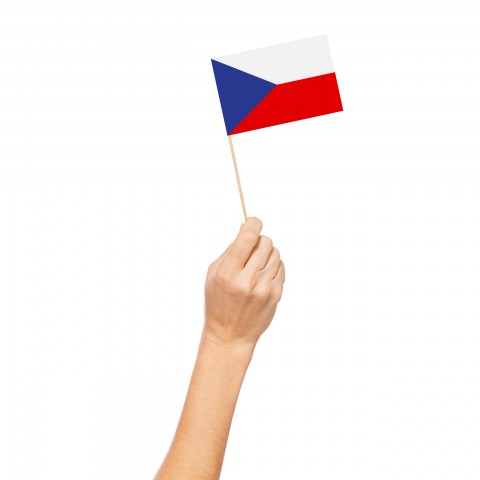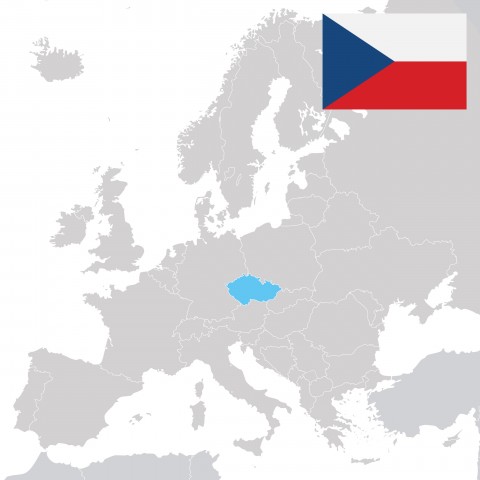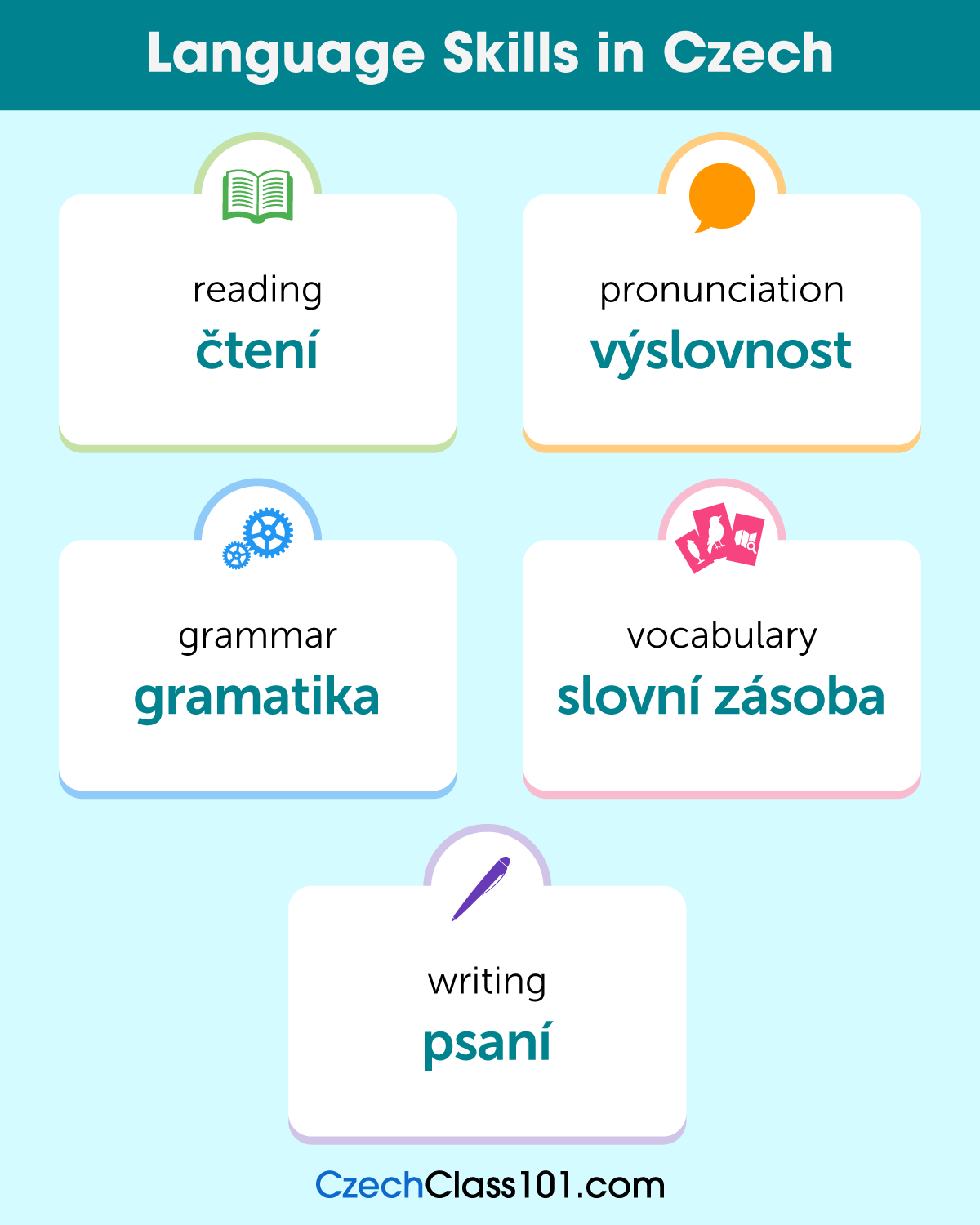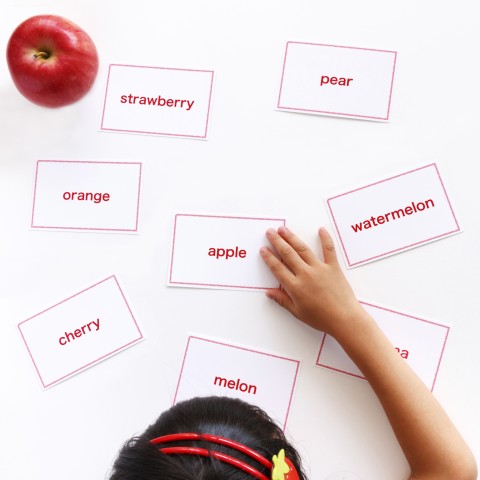
When I was a little girl, I used to spend a lot of time with my grandma. That wonderful lady, like all grandmothers around the world, was an endless source of what (back then) sounded like weird little poems that didn’t rhyme.
And, of course, they made very little sense to me.
You might feel the same way when you look at a Czech sentence that is (seemingly) just a series of random words.
That’s why you should keep on reading this article.
In this list of Czech quotes with translations in English, you’ll find words of wit and wisdom on a variety of topics. From Czech love quotes to proverbs about life, our top picks will give you a little peek into the intriguing Czech culture and mindset. And this, in turn, will enhance your language studies and help you start speaking Czech like a native in record time.
As you read, you’ll find that some of them are very similar to American proverbs, while others are completely different. These little differences and surprising similarities are fascinating—and besides, why not take a break from memorizing new vocabulary or drilling through Czech grammar?
Let’s get started!
 Table of Contents
Table of Contents
- Quotes About Success
- Quotes About Life
- Quotes About Time
- Quotes About Love
- Quotes About Family
- Quotes About Friendship
- Quotes About Food
- Quotes About Health
- A Quote About Language Learning
- How CzechClass101.com Can Help You Learn Czech in a Fun Way
1. Quotes About Success
First and foremost, Czechs are not go-getters. Some three decades after democracy was restored in Czechoslovakia and people finally got to take a breather and expand their lives, they are still…cautious and coy. (That’s why you might think Czechs are unfriendly. They’re not.)
The reason for this is because, not so long ago, they were living a life that the regime dictated and designed for them; “freedom” was just an empty word, and their choices were severely limited in every single way. However, most citizens were also “taken care of,” meaning that they didn’t really have to think for themselves or work hard. This was the case due to a lack of challenges and numerous restrictions.
Therefore, success is quite a “new” thing in the Czech Republic, and you might find some of the Czech quotes about success quite grim.
1. Bez práce nejsou koláče.
In English: “Without work, there are no koláče.” (Czech pastry)
Equivalent: “There’s no reward without effort.”
Oh yes. The average Czech person believes that success is a lot of work; in order to achieve it, you have to work your butt off. Succeeding without putting in extreme amounts of hard work might seem suspicious and is often referred to as “good luck” or “a fluke.”
2. Dvakrát měř, jednou řež.
In English: “Measure twice, cut once.”
In other words, make sure you’re 200% prepared before you take action.
We’re not only pessimistic, but also overly anxious and afraid of failure. So much so that some people never try anything new.
3. Co se lehce nabude, snadno se pozbude.
In English: “What is easy to gain, is easy to lose.”
Equivalent: “Easy come, easy go.”
Oh well. I hate to admit that this is still the number-one rule for some people. As you can see, it would be quite difficult to fill your Instagram with inspirational Czech thoughts.
2. Quotes About Life
What is life all about, and how should a person live? People have been asking these questions for a long time. Here are some Czech quotes about life to give you a glimpse into how the Czech might answer.
4. Mluviti stříbro, mlčeti zlato.
In English: “Speaking is silver, silence is gold.”
Sometimes it’s just better to keep your thoughts to yourself. Unless you’re about to give someone a compliment or offer to make food. In that case, speak up. Always.

Mluviti stříbro, mlčeti zlato.
5. Nehas, co tě nepálí.
In English: “Do not fight the fire that isn’t burning you.”
In other words, mind your own business.
Shrug.
6. Malé ryby taky ryby.
In English: “Even small fish are fish.”
Contrary to the common belief that life has to be hard, most Czech people appreciate the little things in life (which might be another thing learned from the Communist rule).
Here’s a little example:
In 1983, Miloš Forman was shooting his famous Oscar-winning movie Amadeus in his homeland, Czechoslovakia. He brought his Hollywood crew to Prague, which was bleak and gray (sort of like a very poor Russian suburb).
The reasons he decided to set his big project there were pretty straightforward: Prague looks a lot like Vienna, the expenses were considerably lower, and thanks to the regime there were no “capitalistic” changes made to the city (no billboards, ads, or new modern buildings).
One of the American actors happened to have friends who fled Czechoslovakia some years earlier, and before his departure, they asked him to bring some presents and fresh fruit to their relatives back in Europe. Among other stuff, there was a large, fresh pineapple. At that time, the only pineapple you could get in Prague was the canned kind, and the majority of people had never seen the fresh fruit before. The day it was brought to the set, dozens of Czech people gathered around it and admired this new, “Western” wonder.
3. Quotes About Time
Now, here are some Czech quotes and sayings about time to show you how Czechs perceive its influence on our lives.
7. Pozdě, ale přece.
In English: “Late, but still.”
Equivalent: “Better late than never.” / “It’s better to arrive late than not at all.”
Obviously, it’s okay to miss the first ten minutes of a movie and still enjoy the beautiful story—or to meet the love of your life forty years later than expected.
Just show up.
8. Ráno moudřejší večera.
In English: “Better to sleep on it.”
Equivalent: “Morning is wiser than the evening.” / “Take your time to make a decision.”
Do you like to think before taking action? Do you take your time before making a decision?
Maybe the Czech Republic is your spirit country!
4. Quotes About Love
Are you madly in love with someone? Or maybe you’re a hopeless romantic? Either way, I think you’ll enjoy these Czech quotes about love!
9. Láska prochází žaludkem.
In English: “Love goes through your stomach.”
Equivalent: “The way to a man’s heart is through his stomach.”
If you and your partner like the same food, you will likely have a lot in common in other areas, too. I completely agree with this. Not to mention that sharing a dessert or cooking together is a great way of bonding!

Láska prochází žaludkem!
10. Snesl bych ti modré z nebe.
In English: “I would bring you the blue from the sky.”
Equivalent: “I would do anything for you.”
Sounds poetic, right?
11. Jsme dva, dva na všechno, na lásku, život, na boj i bolest, na hodiny štěstí. Dva na výhry i prohry, na život a na smrt – DVA!
In English: “There’s two of us, two for everything, for love, life, for a fight and pain, for hours of happiness. Two for wins and losses, for life and for death – TWO!”
- – Karel Čapek, Czech author (1890-1938)
I have always felt like Czechs weren’t the most affectionate people. You won’t hear fiery love declarations too often…if ever. Also, we don’t use the word milovat (“to love”) nearly as often as it’s used in English.
5. Quotes About Family
Family is a major cornerstone of any society. Learn how Czechs perceive familial relationships with these Czech quotes about family.
12. Krev není voda.
In English: “Blood is not water.”
Equivalent: “Blood is thicker than water.”
Czechs are usually very close with their families (although not to the extent that Southern Europeans are). It’s partly because it isn’t common to move for work and people usually spend their whole lives in one town—or even in one house.
Sunday family lunches are a very common thing, and during the summer break, kids often spend a lot of time with their grandparents.
13. Bližší košile nežli kabát.
In English: “Your shirt is closer to your skin than your coat is.”
This basically means that your own interests/family should be your priority.
Oh yes, we really do like to protect our privacy and hang out only with people we have known for a while!
14. Host do domu, hůl do ruky.
In English: “If a guest comes to your home, grab a stick.”
You guessed it! Czech people aren’t really used to having people over and they are very protective of their privacy. If someone invites you over to their house, it means they trust you and feel warmly about you.
6. Quotes About Friendship
Friends are one of life’s greatest joys and necessities. Here are some Czech friendship quotes for you! Can you relate?
15. Lépe mít sto přátel, než jednoho nepřítele.
In English: “It is better to have a hundred friends than one enemy.”
Equivalent: “Do not think that one enemy is insignificant, or that a thousand friends are too many.”

You can never have too many friends.
16. Nejlepší přítel je ten, co tě napomene, co ti řekne pravdu do očí. Toho si važ!
In English: “The best friend rebukes you and always tells you the truth. Appreciate friends like this!”
- – Božena Němcová, nineteenth century Czech female author (1820-1862)
Yup, being honest (often too much) is a huge Czech thing. Our friendships tend to be long-term and based on “tough love.”
7. Quotes About Food
Who doesn’t enjoy sitting down to a nice meal now and then? Here are some quotes in Czech that touch on the topic of food!
17. Hlad je nejlepší kuchař.
In English: “Hunger is the best cook.”
If you’re hungry, you’ll forget about being picky and just eat whatever you’re served. (I hated this proverb so much when I was a kid!)
18. Sytý hladovému nevěří.
In English: “No one will believe you if you’re hungry and they’re not.”
Equivalent: “He who has not experienced difficulties does not believe the accounts of those who have.”
Right. If you’re not in the same boat, it will be pretty difficult to make people understand your struggles.
19. Jez do polosyta, pij do polopita.
This is like saying, “Only eat and drink until you’re half-full.”
No second helpings. (Unless it’s pizza?)
8. Quotes About Health
You should always prioritize your health, because only in good health can you accomplish more important goals and live life to the fullest. Here’s what Czechs have to say about it.
20. Veselá mysl je půl zdraví.
In English: “Merry mind is half of your health.”
Czechs, like many people, believe that everything you do is “healthy” as long as it makes you happy. I totally agree. I mean, if you eat a giant piece of cake that you love so much that it creates sparks of joy floating around in your head…it becomes healthy food, right?
21. Prostě-li žiješ, sta let dožiješ.
In English: “If you live simply, you will live a long life.”
Living and eating simply is beneficial not just for your physical health, but also for your mental health. And our ancestors were well aware of it. Many of us struggle with the unnecessary stress we put on ourselves to just “live a great life” or to “achieve great things.” It’s good to go back to the basics and enjoy the simple things.
22. Strach je nemoc špatného svědomí.
In English: “Fear is a disease of those who feel guilty.”
Equivalent: “Guilt leads to a diseased soul.”
- – Karel Čapek, Czech author
Čapek wrote this in reaction to the political changes that preceded WWII. He was one of the most influential Czech writers of the twentieth century (by the way, he also invented the word “robot”) who died less than a year after the beginning of WWII. He was close friends with the first Czechoslovakian President, Tomáš Garrigue Masaryk. (By the way, the President’s middle name is actually his wife’s maiden name. Charlotte was an American suffragette, and they got married in Brooklyn.)
9. A Quote About Language Learning
To close, let’s look at a quote about language learning. What better way to motivate you in your language studies?
23. Kolik řečí umíš, tolikrát jsi člověkem.
In English: “The more languages you can speak, the more times you are human.”
Equivalent: “A new language is a new life.”
Learning foreign languages was not common during the Communist Era. Children took Russian (of course), and no one really expected that there would be such wonders as online shopping, YouTube, or even traveling abroad.
Today’s kids are usually pretty good at English and a lot of Czechs speak or learn German.

Learning another language will make your life more exciting in many different ways.
10. How CzechClass101.com Can Help You Learn Czech in a Fun Way
CzechClass101.com will make learning Czech easy, exciting, and fun. With us, it’s not about endless memorizing or thick textbooks. Learn Czech with us and make progress faster than you could imagine!
What can you find here?
- English-to-Czech translation and pronunciation tips/tricks
- Over 630 audio and video lessons
- Vocabulary learning tools
- Spaced repetition flashcards
- Detailed PDF lesson notes
Sign up now—it’s free!
One last thing: Let us know in the comments which of these quotes is your favorite, and why!













 Table of Contents
Table of Contents


















 Table of Contents
Table of Contents







































